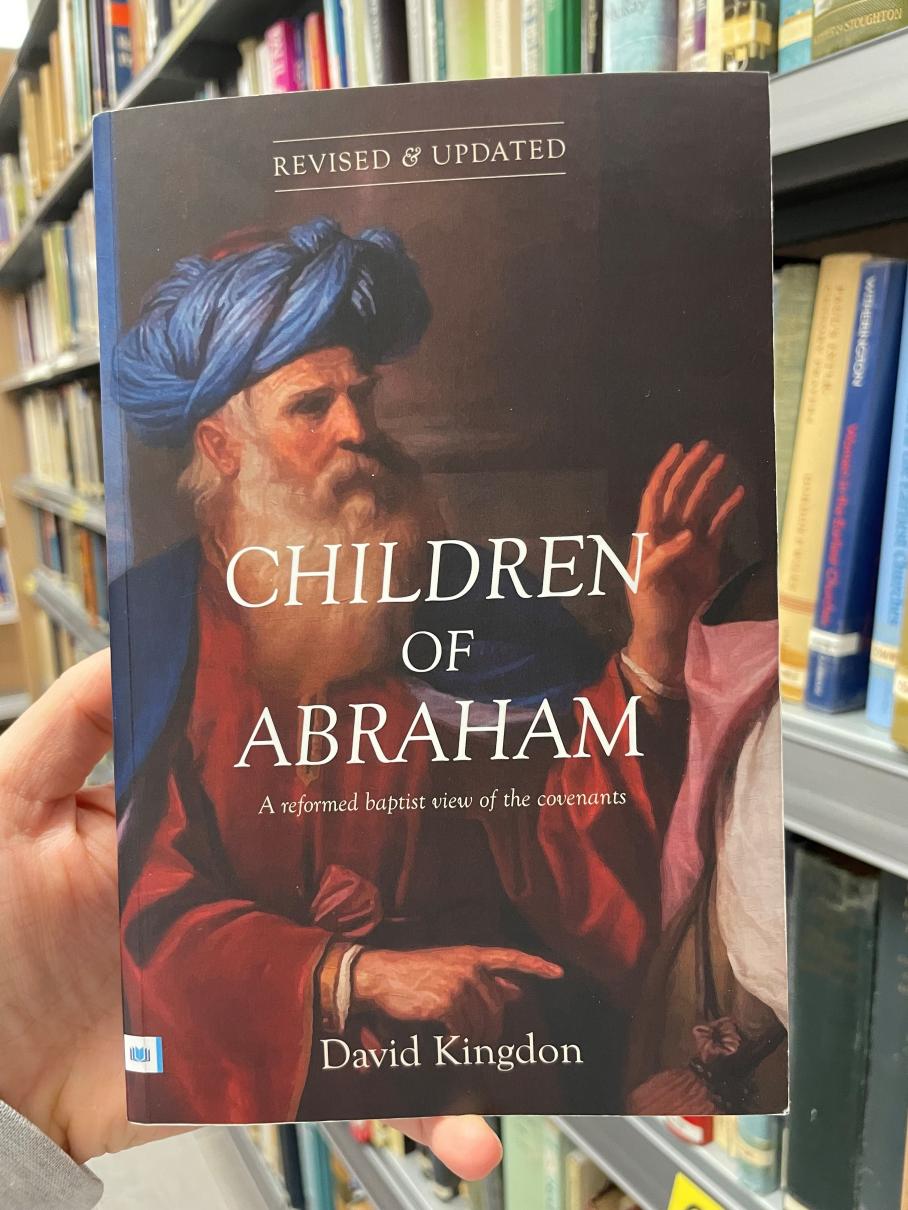Book Review: Children of Abraham: A Reformed Baptist View of the Covenants by David Kingdon

Book Review: Children of Abraham: A Reformed Baptist View of the Covenants by David Kingdon
By Davy Ellison
This book immediately piqued my interest on a variety of levels. First, it is written by a former Principal of the Irish Baptist College. Second, I am always glad to see a solid defence of believer’s baptism. Third, I was intrigued by the title and how Kingdon might handle the covenantal issue.
My initial interest was further strengthened by the content of the book. After a foreword by Geoffrey Thomas and a preface by Robert Strivens there is some introductory material by Kingdon, offering an overview and some definitions. The book is then divided into three parts. In part one the unity and diversity of the covenants in Scripture are addressed, and the bearing of the discussion on baptism highlighted. Two issues come to the fore: 1) the correct candidates for baptism and 2) the impact of baptism on the doctrine of the church. In part two Kingdon surveys Scripture’s view of children. Baptists are often critiqued for their neglect of children in their theology. This section proves a helpful corrective to that criticism. Part three is constituted of new material written by Kingdon before his death in 2021. Particular focus here is on the influence that John the Baptist should exert in the conversation about the newness of the covenant and its subsequent impact on the practice of baptism. The book is then supplemented with an annotated bibliography compiled by Jeremy Walker.
A number of features commend this volume to readers:
- To begin, Kingdon is charitable to his opponents. The overall approach and tone is gracious but firm—an excellent example to set in discussions that can prove emotionally charged. Additionally, this fair treatment of others’ approaches forces them to engage honestly with Kingdon’s arguments.
- A second strength in this treatment of baptism is the consistent link that Kingdon draws between the practice of baptism and the doctrine of the church. Baptism is not an isolated issue, it is interconnected to all aspects of the Christian life. Kingdon writes: “This matter is of vital importance to every area of church life of which we can think. Our doctrine of salvation and of the church, our evangelism and our view of children” (p. 106).
- Third, Kingdon very helpfully spends more than 60 pages dealing with Scripture’s teaching on children in relation to the covenant community. This offers a way for those who are convinced of believer’s baptism to think seriously and biblically about children.
- Fourth, there is an honesty about Kingdon’s conclusions that is winsome. He refuses to overstate his case. I was particularly struck by his conclusions on children and regeneration. Although readers may disagree, Kingdon is painfully honest about his conclusions in light of Scripture and reason.
After reading this book I am convinced that it deserves a wide readership. I believe that those who hold to infant baptism would do well to seriously and honestly reason with Kingdon’s critique of their position. Those who hold to believer’s baptism more nonchalantly would benefit from seeing the consequences that seep into other areas of Christian life if our theology of baptism is not sound. For those who are convinced, Kingdon will likely deepen and enrich that conviction.





